Hamas-Fatah-Reach-300x175.jpg" alt="(Photo: islamicinvitationturkey.com)" width="420" height="245" /> (Photo: islamicinvitationturkey.com)
*Dr. Daud Abdullah
Even in the best of times it would take much more than good intentions and hope to make the unity arrangement between Fatah and Hamas work. Both parties have managed, thus far, to avoid the external meddling and pressures that have derailed previous agreements. Their ability to continue doing so will now be tested to its limit on two fronts: the Rafah Crossing between Gaza and Egypt, and security in the West Bank.
On the former, it seems that Egypt literally holds the key. This, however, is only partially true. The regime in Cairo is, perhaps, even more committed to security cooperation with Israel than the Palestinian Authority (PA) is. Indeed, newly-elected President Al-Sisi is hugely indebted to Israel for its staunch political support from the time that he toppled democratically-elected President Muhammad Morsi with his military coup almost a year ago.
Despite assertions that the government is committed to opening the Rafah Crossing under the new unity government, Cairo will, inevitably, come under Israeli pressure to extract maximum concessions from both Hamas and the PA. Already, Israel has called for the disarmament of Hamas. As far as President Mahmoud Abbas is concerned, he will be nudged vigorously to return to the negotiations unconditionally, if only to create the facade that they are working towards a just settlement.
Also Read: Palestine Solidarity Month: A Collective Movement for Al-Aqsa and Palestine’s Freedom
Given the untold human suffering caused by the siege of the Gaza Strip, it would seem that it’s an open and shut case that the Egyptian authorities will end its contribution towards the collective punishment of the 1.5 million Palestinians living in the enclave. However, this is a regime that cares very little about its public image and international standing.
Only a few countries are well positioned to bring pressure to bear upon them. One such broker is Saudi Arabia, which financed the coup that brought Al-Sisi to the presidential palace. Riyadh is unlikely to respond to a call for an easing of the siege while Hamas continues to exercise influence on the ground. It views Hamas as a natural extension of the Muslim Brotherhood, towards which the Saudis, like Al-Sisi, have a visceral antipathy.
According to official figures, there are about 15,000 people now registered in Gaza to travel; they include thousands in need of medical treatment abroad. On top of that, after two devastating wars imposed on it by Israel, Gaza’s fast growing population faces a chronic housing shortage. More than 180 construction projects have been suspended because the Egyptians and Israelis are blocking the delivery of essential building materials, with a serious effect on Palestinian unemployment.
Despite these obstacles, officials in Gaza are trying to put in place a mechanism that will allow the free movement of goods and people on both sides of the border. Unlike the past seven years, they seek an arrangement of participation and inclusion of all forces. Furthermore, they have demonstrated considerable flexibility by expressing a willingness to discuss with Fatah a possible role for EU monitors.
Also Read: Hassan al-Turabi: A Controversial Thinker from Sudan
Meanwhile, in the West Bank the challenges are equally formidable. Growing support for the prisoners in Israeli and Palestinian jails is testing the ability of both Fatah and Hamas to maintain cordial relations. There are some 127 administrative detainees held by Israel who are approaching their 50th day on hunger strike. A number have already been hospitalised. Instead of allowing solidarity protests, the Ramallah security forces have sought to suppress demonstrations and arrest activists.
Israel has overtly encouraged the crackdown, claiming that Hamas is poised to take over the West Bank. It has passed a new law prohibiting its president from granting pardons to Palestinian prisoners. If approved by the Israeli parliament this would be yet another blow to the 5,271 prisoners and 191 administrative detainees in Israeli jails. The consequence could be a ground-swell of popular outrage.
Contrary to local custom and traditions, PA forces recently attacked a women’s demonstration in Tulkarem. They manhandled some of the women, ripping off their hijab, claims Ikhlas Al-Sayed, the wife of Abbas Al-Sayed, one of the most prominent prisoners held by the Israelis. That may well be the tipping point. Some of the victims now hold President Abbas personally responsible. There is a growing perception across the West Bank that Abbas is not doing enough to help the cause of the prisoners. This was reinforced substantially when he made his controversial decision to abolish the ministry of prisoners’ affairs.
Even so, it’s not just about Abbas; the relatives of detainees are urging Hamas to adopt a more proactive stance towards the situation in the West Bank. This will, undoubtedly, add further strain to the fragile reconciliation agreement.
Also Read: Who Exactly is the RSF Group Shaking Sudan?
Despite the signing of the Shati agreement and formation of the national unity government, Hamas and Fatah both still have a mountain to climb. Time seems to be running out; without an opening of the Rafah Crossing and an end to the security abuses in the West Bank, the agreement will not be worth the paper it is written upon. While it may be too early to pronounce judgement on the new government, the writing is already on the wall, and it doesn’t make pleasant reading.(T/P02/E01)
*Director of Middle East Monitor (MEMO), London, a Contributor to Mi’raj Islamic News Agency (MINA).
Mi’raj Islamic News Agency (MINA)
Source: https://www.middleeastmonitor.com/resources/commentary-and-analysis/11963-hamas-and-fatah-still-have-a-mountain-to-climb
Also Read: The Two-State Solution (Palestine–Israel) in Historical Perspective





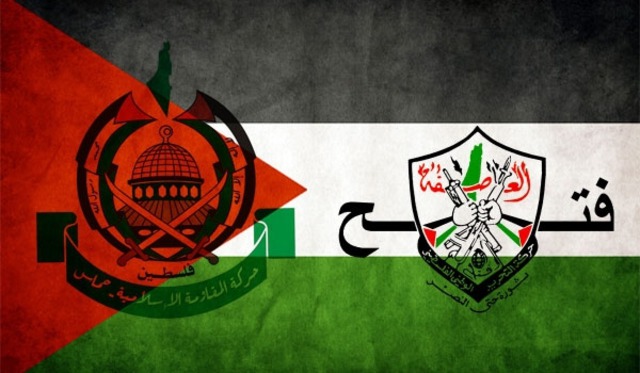


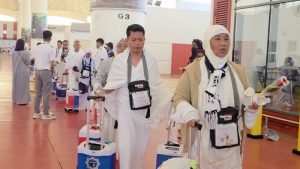

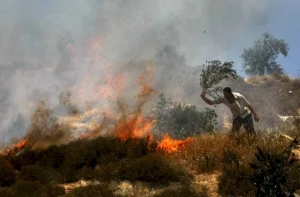


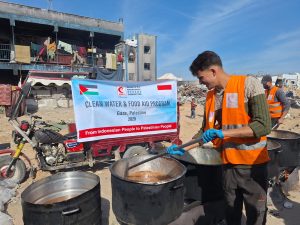











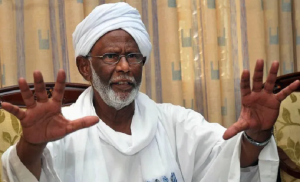

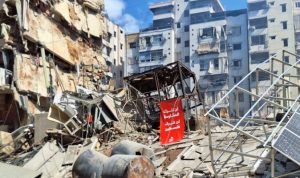





 Mina Indonesia
Mina Indonesia Mina Arabic
Mina Arabic